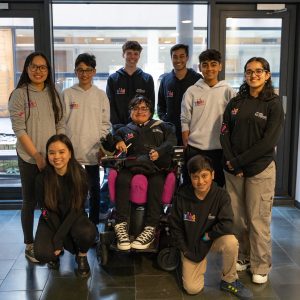
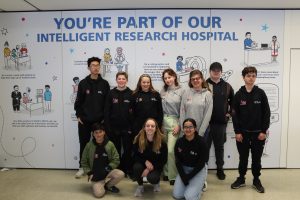
We have over 50 members in our group and around 20-30 members attend our meetings. Our group is made up of young people, age range 12-25 years old. We meet six times a year. Since the Covid-19 pandemic we will be a mix of hybrid and Zoom meetings. Many of our members are current or former patients of GOSH, some are siblings, and some are members of the public. Some members have participated in research studies or clinical trials. We are funded by the National Institute for Health Research (NIHR) Biomedical Research Centre at Great Ormond Street Hospital for Children NHS Foundation Trust and University College London.
During our meetings we learn about health care and health research. We help researchers to understand more about what it’s like for young people to take part in studies so that they can design studies that better meet the needs of young people.
We also speak at conferences and events and to work experience students. We sometimes attend workshops outside of GOSH where we helped with designing a research project.
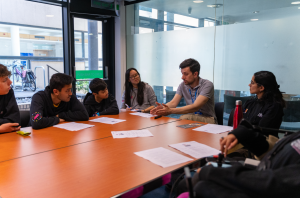
We reached out to three new GOSH YPAG members to get their opinions on the importance of women and girls in science.
Hi, I’m Rose and I joined GOSH YPAG in November 2022, I’m also a member of GOSH YPF and a GOSH Foundation Trust Governor.
Who are the female scientist role models who have inspired you?
I am inspired by the female staff at GOSH. Whereas women are often pigeon-holed into being either compassionate or professionally excellent, the female staff at GOSH defy this. Working kindly in a world-leading hospital, they prove that expertise and tenderness are not mutually exclusive.
Do you feel that being a member of GOSH YPAG has helped you learn more about science and research?
Definitely! It has reminded me that there is always ‘behind the scenes’ research being conducted. Even if we only hear of the large, revolutionary discoveries, smaller progress is being made daily and being part of GOSH YPAG reminds me of this.
Hi, my name is Leila and I joined GOSH YPAG in April 2022 after realising how it perfectly combined my interests of medical research and public health/ improving patient care! Being a member has meant I’ve learnt a lot about science and research from many different healthcare professionals and from discussing topics with peers.
At a GOSH YPAG meeting with members of the cancer research team at UCL, I was introduced to the case of a patient whose acute lymphoblastic leukaemia was thought to be incurable and fatal until her family and healthcare team decided to take a ‘leap of faith’ and trial CAR-T cell therapy. Despite her initially not improving, she managed to survive and is now 10 years free of cancer – effectively cured. It was inspiring to be able to learn about this case and see how much impact research can have on individuals, but also on society as a whole; especially since this case kickstarted the use of the treatment for other patients.
The researchers also highlighted the ever-evolving nature of science and medicine: this treatment is in fact less useful now on acute myeloid leukaemia and research is being done to study whether micro-RNA can mediate immune suppression to improve the immunotherapy’s efficacy.
My name is Danait, and I joined GOSH YPAG in November 2022 after hearing a work experience talk on Patient and Public Involvement in research and the GOSH YPAG.
You and some of your classmates took part in the UCL Great Ormond Street (GOS) Institute of Child Health (ICH) work experience scheme last October – how did you find the experience?
Thoroughly enjoyable and engaging! We toured the state – of -the- art laboratories in the new Zayed Centre for Research and learned about the machinery they contain (such as flow cytometers) and how they function. My favourite activity was looking at muscle cells under a fluorescent microscope and distinguishing between cardiac and skeletal cells. I also feel like I gained insight into the administrative side of research that all scientists must go through such as applying for funds or the path towards a clinical trial.
‘Thank you to the group and you for letting me come along. For me personally it was a great experience. I have taken the feedback to the researchers and they are going to redo the forms and submit to ethics.’
‘Thank you for a most wonderful session with the MCRN CYP at GOSH yesterday. Could you please let the group know that they were not only helpful, but also inspiring. We will definitely incorporate their suggestions into our revisions of the information leaflets, and their comments into in the rationale for our approach to involving cyp in the project and I dare say others as well.’
‘Thank you for inviting me to come to the YPAG meeting… I’ve just read through all of the really useful feedback from the group and made some helpful changes to my info sheets. They’re a great group – all very thorough and had some really good suggestions to make!’
‘I really appreciated the discussion with your various questions and your opinions on the questions I had prepared. I am confident your comments will help our team in improving the design of our clinical trial’
‘I’ll tell you honestly that this group of young people is truly amazing and terribly useful. I really enjoyed the opportunity to present my project and I will incorporate their suggestions into trial leaflets’
Please contact research.ppi@gosh.nhs.uk with any queries. Biomedical Research Centre at Great Ormond Street Hospital and University College London.
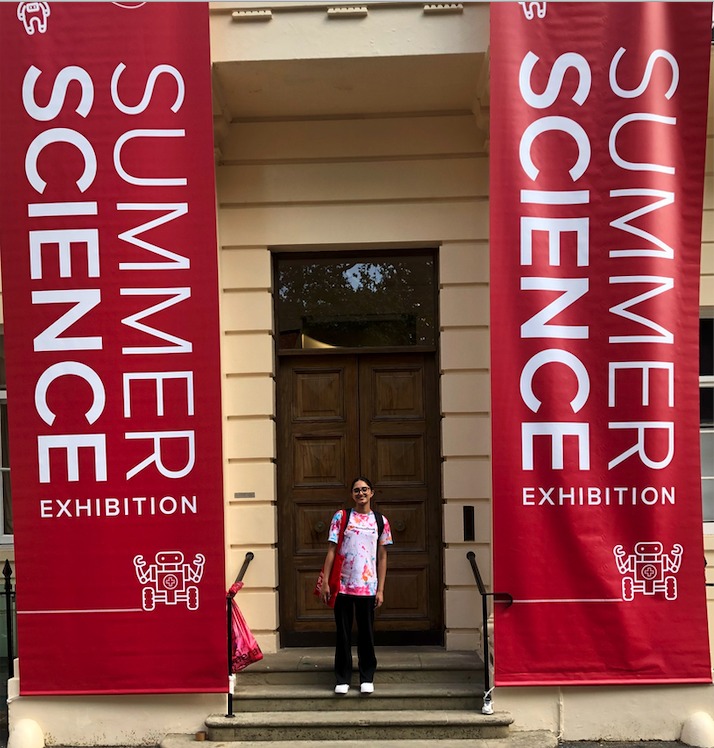
GOSH YPAG have been collaborating with the ChromaDose team since March 2021 and several Blogs have already been written with our updates. The ChromaDose team are conducting research into developing a blood testing device to personalise the amount of medicine (anthracyclines) children with cancer receive. This is due to the differences in exposure (the way […]

Hi my name is Walter and I was one of 6 YPAG members who took part in three evening training workshops on Qualitative Interview training in April and May 2022. Below is a Q&A where I tell you about our experiences. You can also listen to myself, Sarun, Niamh and Orla telling other YPAG members […]
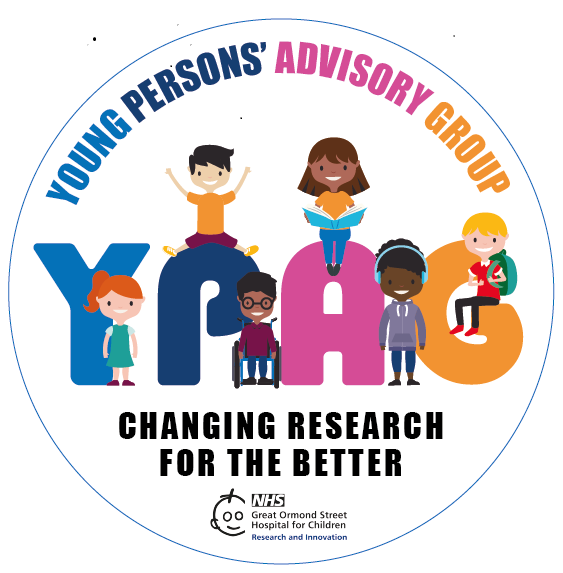
GOSH YPAG and Chromadose We are excited to be involved in a ground-breaking project to personalise childhood cancer treatment. The ChromaDose technology will be able to calculate each patients’ drug exposure within a drop of their own blood. This will mean, the amount of cancer drugs the patient has can be adjusted to suit […]